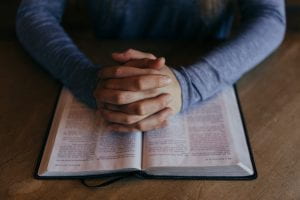So far I have no ancestors in Queensland so I kept up with the chat easily today.
Resources to use for Queensland research
Here’s an unusual #Queensland archive, the Thoroughbred Racing Museum & Archive. I came across it when researching ggGF Ernie Trew, horse trainer in Brisbane abt 1897-1914
There is a ton of info on Judy Webster’s site, indexed from Qld State Archives.
I can’t join #ANZAncestryTime live, but on the topic ‘Queensland’ see bit.ly/3ovRIB9 for advice + 70,000 names from my indexes to historical records here. The names include many interstate/overseas folk with links to Qld.
Full disclosure as a member of the Qld Family History Society I am naturally biased but if you’d like to check out our website tonight you can do so here qfhs.org.au you can do a global keyword search here qfhs.org.au/online-access/…
More QFHS stuff..you can see how many databases we have here – the ones with the green asterixis anyone can drill right down. qfhs.org.au/online-access/…
They have a good deal of info esp Council records. Maps also available at Qld State Archives (QSA)
QFHS created a little presentation to show you what resources we have on our website
Ipswich Libraries have great talks and may provide some assistance ipswichlibraries.com.au/discover/ipswi…
Very friendly folk at the Toowoomba and Darling Downs FHS and the society website here tddfhs.org.au
Many research trips I have made to Toowoomba Alex. The local studies section of the library (was independent a few years ago) is excellent too
State Library of Qld (SLQ) has lots of great resources including material on mining accidents in Qld 1882-1945 slq.qld.gov.au/research-colle…
Yes folks – don’t forget the fabulous library services in Queensland. The mothership is SLQ of course but there are lots of other lovelies e.g Moreton Bay ourstory.moretonbay.qld.gov.au and the Gold Coast to name just two goldcoast.qld.gov.au/libraries/Expl…
Hint – google “local studies” as well as “local history” or “family history” when looking for libraries to help.
QLd has some great record sets. School records, electoral rolls, ship immigrant lists, Gaol & court records, naturalisation, inquests, land selection, maps, insolvency. All held at Qld State Archives
Qld State Archives, SLQ, Local Libraries Family and Local History Societies, Church Archives, Trove, Local Museums
I have made some great discoveries in Church Archives. Baptisms and marriages may include additional info. Also more general information about places where relatives lived.
Queensland State Archives is a must visit place with so many records for family history. I also found the State Library of Queensland useful. These days one would have to say Trove.
Teachers Records were most useful to me at the Qld State Archives – lots of rich detail about where they came from and lived before they came to Australia. Electoral rolls, cemeteries and good old Trove too. And wonderful cousins who I found along the way !!
We are really fortunate in Queensland to have access to so many great record sets, one of my favourites being Qld B,D,M index. which you can access here familyhistory.bdm.qld.gov.au
Council records: Cemetery burial registers (many inline now); Council sewerage and other maps; Council rate books may reveal unknown properties.
Brisbane City Council Archives was hard to find but very much worthwhile visiting
Queensland BDM’s Trove Australian War Memorial & NAA service records McCosker Tribal Pages website – receiving comments from relatives at my Adams Family blog where I’ve been documenting Dad’s various ancestral lines
Family history/genealogy societies cemetery transcripts are really useful. They often have other area specific resources not always online so a visit is a good idea if you can.
QSA – just about my favourite place. Don’t forget to book though if you want to visit.
For an overview of what QSA has go here qld.gov.au/recreation/art…
University, state and National reference libraries for books and journals to provide context for your research. Also their genealogy support, ask a librarian and guides.
SLQ’s research guides are here slq.qld.gov.au/research-colle…
it would be remiss of me not to give you GSQ’s site too gsq.org.au – a fabulous blog and great workshops 🙂
Newspapers offline and online. Search for pioneer stories as well as obits, weddings, BDM notices etc. also overseas news for an ancestor’s name and/or place.
Locality publications genealogy-noosa.org.au/publications
Just feel the need to share these 3 for QLD research I’m sure all the QLD experts know these, but perhaps an outsider may find them useful Historical Data Sets data.qld.gov.au/dataset?groups… QLD Historical Atlas qhatlas.com.au Text QLD textqueensland.com.au
Q4. Just back from a long weekend at Winton, QLD and surrounds. At the Waltzing Matilda Centre they have a room with loads of family history research. If you have family from this area a visit might be worthwhile.#ANZAncestryTime pic.twitter.com/qPYEuu3UT5
— fran kitto (@travelgenee) November 16, 2021
Where did your Qld ancestors come from and on which ships did they arrive? Where did they settle and did they stay in one place or move around?
all my immigrant families came to Qld and I have 11 pre-Separation (pre 1859) pioneers. They range from 3xgreat grandparents to great grandparents
Surnames for my immigrants: Kunkel (Bavaria); Kent (HRT Eng), Partridge (GLS, Eng); Gavin/Murphy (Dublin, Wicklow, Kildare); O’Brien (Clare, IRL) all pre 1859
Post Separation immigrants: McSherry families 1883 and 1884 (Wexford IRL); Melvin (Leith, MDL, SCT) 1877; McCorkindale (Glasgow, Lnk, SCT) 1910
Ships: Florentia 1853; General Hewitt 1854; Fortune 1855; Woodlark 1877; Melpomene 1883; Almora 1884; Perthshire 1910.
Ipswich was first point of settlement for many of my immigrants: Kunkel, Kent, Partridge, Melvin. McCorkindales came to Brisbane and stayed there. Gavin family was on the Darling Downs. McSherry families to Rockhampton.
My Qld ancestors came from Scotland, Ireland, England, Switzerland and Germany. German settled on the Darling Down, Swiss and English in Maryborough, Scottish and Irish and Northern Irish in Brisbane
My GGG grandparents John and Helen Carnegie arrived in Brisbane in 1865 on the Sunda. They were from Montrose, Scotland and came out with their children. They moved to Grafton before returning to Queensland to live at Toorbul. Just across from Bribie Island!
I just love that you’ve ended up so close to where they were originally. This happens so often in Family History.
Hi everyone 🙂 My ancestors sailed from London in 1885 on the Duke of Buckingham arriving first in Rockhampton. They were teachers, so moved around a bit: Cometville near Emerald, Bustard Head, Readville near Beaudesert, then Monkland.
Great grandfather Herbert William White was from Wiltshire and he arrived on the Chyebassa. He married Dorcas Trevaskis whose parents married in Moonta, South Australia before moving to Charters Towers where she met Herbert.
I have only one known family in Queensland – they migrated there from Victoria, so have done no research. None of my ancestors were in Queensland. One part of the family moved from Victoria to Queensland last century. I have a cousin by marriage living there, and my husband has a child and family living there.
BUT I have quite a number of people who are in Queensland in my Legacy tree. Some of them are from DNA matches that I haven’t managed to link to me yet.
G-GF William Andrew arrived in Brisbane from Scotland on RMS Roma in 1888. He worked in Bundaberg before marrying & moving to Broken Hill 1894. His wife Minnie O’Shaughnessy immigrated from Ireland around the same time but her records are elusive
John and Sarah Finn married in Rathdrum, Wicklow and came out to Brisbane on the Mairi Bhan with their first child. They had land at Nambour, spent time in northern NSW but ended up back in Brisbane. South Brisbane cemetery to be exact.
They went to Grafton after he did some gaol time. They changed their surname for about 10 years before moving back to Queensland and claiming their land orders in their Carnegie name. Skeletons everywhere in my family.
Thomas and Elizabeth Price married in Staffordshire and then came out to Sydney on the Samuel Plimsoll. They wandered all over until they ended up in Charters Towers with 10 children
Wow! That’s so great. My husband’s family were mostly Queenslanders and some pre-sep but I have only the Conners who came out after 1854.
Haberling Switzerland 1871, Nerger Germany 1852, Siegler Germany 1862, Morrison England and Scotland 1868, Weston Maryborough 1870, White Kaimkillenbun to 17 Mile Rocks 1912, McDade Scotland 1923
Robert’s ancestors settled around Walloon and I really want to spend a bit of time at Ipswich Library service looking at maps and getting a sense of the area
My g g grandparents (Morrison) settled first in Victoria then NSW then Ipswich Qld and later ended up in Cooroy
My Adams Brown Weatherstone Dougherty Waters McDonald Robinson Barden Easton McCosker Power Byrne family moved to Goondiwindi after they had lived elsewhere in NSW – with their ancestors having arrived from England Scotland Ireland and America
I just checked – there are Sinnamon’s in the McCosker Tribal Pages site – the late John McCosker who set up the site did an amazing amount of sleuthing to track down McCosker’s
I have not found any Queensland ancestors on my sides. One of MrTG’s uncles came from QLD however I restrict my tree branches to ones closer so I have not investigated him beyond the basics.
My Goondiwindi – Warwick Queensland ancestors were on Dad’s side – and in the last few years I found some Newlands relatives on Mum’s side who were up there too – I found in #Trove that back in 1870’s they all played on the same cricket team
Many people know me as a Queenslander, but most of my ancestors lived in NSW, or VIC (and eventually settled in NSW). One ancestor did arrive in Moreton Bay first, then found Ipswich too hot and moved south to Newcastle (where I was born).
MyKent and Partridge families didn’t move from Ipswich. The McSherry families were the most peripatetic being railwaymen. Kunkels moved from Ipswich to Murphys Creek below Toowoomba. Melvins: Ipswich to Charters Towers for 20+ years then Sydney.
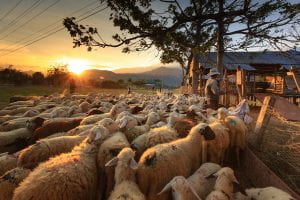
What reasons might your ancestors have had for settling in Qld? ie assisted migration, family connections?
Was the Qld government actively looking for emigrants in Germany? I know it was in Scotland.
The Australian Govt was actively recruiting emigrants from Germany Brooke. They had German agents in Qld to find people
Yes it was though some was during the pre-Sep phase with vinedressers scheme from NSW. Also don’t believe they were all Lutherans! There were many Catholics among them.
Theoretically anyone with experience working in vineyards – many were casual seasonal labour in Germany. Sadly some were then employed as shepherds in isolated places – very different from village life.
selection criteria for German vinedressers had rules Re size of family to get assisted passage, ages and marital status.
i think there were better employment opportunities for my ancestors out here. Although I also think they were trying to escape their past lives and difficult family situations.
None of my families had any other family here. They were mostly miners which is why Copperfield and Charters Towers are where they moved to.
William Andrew was an assisted migrant. I’ve looked at the passenger records (although I always forget where they are, is it Qld Archives or Library?)
Reasons for migration are often unknown. Assisted passages were a big incentive. Some followed earlier family (Melvin, McCorkindale). Railway construction for the McSherry families. Bankruptcy in England possibly for the Kent’s who came with adult family
I know my great grandparents left Scotland after a scandal and settled in Brisbane because relatives were there. My other g grandparents left Northern Ireland because of health problems but also had family on the Darling Downs
oral history for George Kunkel says he left to avoid military service. Possibly also because he wasn’t the eldest son to inherit the family inn or attracted by gold rushes. As a swimmer who’s eluded my searches for 35 years it’s hard to be sure.
My ancestors in Goondiwindi had been shearers drovers and graziers – so they lived there because of employment & agricultural opportunities – they had moved from Hunter Valley, Grafton, Collanebri
why did the ancestors of my Goondiwindi ancestors come to Australia ? assisted immigration from poor agricultural and urban areas and convicts – ps A1 – I forgot about the Tulloch Anderson ancestors of my Barden’s who were in Goondiwindi
Assisted immigrants (Germany) definitely came for employment opportunities. Shepherds were needed on the Darling Downs and everyone on the ship claimed to be a shepherd.
My g grandfather left NZ for Qld to desert a wife and become an opera singer
He sounds like a colourful character Sharn
He was Annie. he deserted the second wife in Qld and ‘drowned’ in his best suit then was arrested travelling to Sydney first class by train with no ticket
One Qld ancestor (Frayne) came unwillingly as a convict. He remained in Qld after being sent to Moreton Bay
I think the Irish, esp soon after the Famine, came for employment & hoping for land. Others had same employment here as “at home”. Others had more opportunities to build businesses. Adult family groups came for the younger ones to have opportunitie
Some Bavarians came to have the chance to own land and be independent. Also complex rules Re marriage made it possible for them to marry en route and have families here.
Apparently my ancestor worked at a brick works company in or near Ipswich, however, I don’t know much at all about this period of this life. It’s one of the gaps in my research! He was a coal miner by trade, and later owned an orchard in Newcastle.
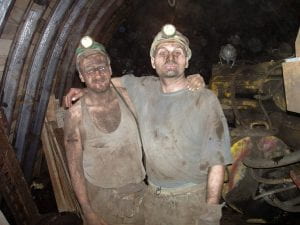
Did your Qld ancestors have the same occupations before and after migration? Do you think employment was a reason for settling in Qld?
John Finn was an agricultural labourer in Wicklow Ireland and the idea of having his own land was the attraction. Sadly they lost the Nambour farm after John had a bad accident,
My Scottish g grandfather was a coal miner and in Brisbane worked as a labourer for the council. My g grandfather from England was a builder there and here he became a well known rail carriage builder and built churches
Thomas Price was from a family of coal miners in Staffordshire and spent time gold mining in Charters Towers. He died at the Wee McGregor mine (out near Cloncurry) in 1918.
My Northern Ireland Whites were flax farmers in Co Tyrone and Dairy farmer at Seventeen Mile Rocks.
My Swiss g g grandfather was a boot maker in Zurich and a bootmaker in Maryborough.
John Carnegie was a sailor back in Scotland and his love of boats probably led him to settle on the Clarence River and then the final move to Pumicestone Passage where he was an oyster farmer.
My German ancestors came for employment and went on to own land on the Darling Downs
land availability out Goondiwindi way & across the border at Boggabilla. The families would have come for agricultural related opportunities – droving shearing graziers – back in the UK and Ireland their ancestors would have been in agriculture and gardening
I think he did work in the same occupation eventually (coal miner), but I think his first job in Queensland was something to do with bricks. I’m keen to learn more about him, because some say his mother was a professional actress.
My g g grandmother from Zurich was a housewife before migrating but a court translator in Maryborough as she spoke many languages
My Cornish ancestor James Henry Trevaskis was a tin miner which is why he went to Moonta copper mines and then Copperfield in Queensland.
I’ve looked for newspaper reports on the death of my gt gdmother Matilda Adams nee Waters without luck – she was thrown out of a sulky when the horse bolted and died in Goondiwindi hospital a week later in 1924 – any help would be appreciated
#ANZAncestryTime A3 Yes they did have the same occupations. The women tended to stay at the same level but one sister’s husband’s was promoted to School Inspector.He was so proud of his BA he put it on his gravestone at Toowong Cemetery. His eldest daughter became a Doctor. pic.twitter.com/74rU5x4Ict
— alex daw (@luvviealex) November 16, 2021
Blog Posts about Queensland families and research
Alex: Wealth for toil, Calendar cemetery and October challenge,
KerrieAnne: Queensland family,
Pauleen: Queenslander, Australia Day, Text Queenslander,
Sharn: Tower in the garden, What killed great grandad?, Telling an immigrants story,
Readers: have you done any research on ancestors based in Queensland? What resources did you find useful?

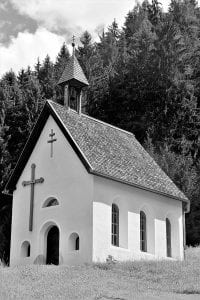
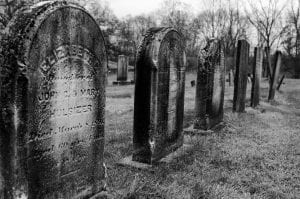
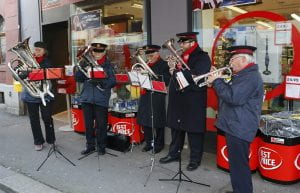
 (loved the ones that were in tables)
(loved the ones that were in tables)
